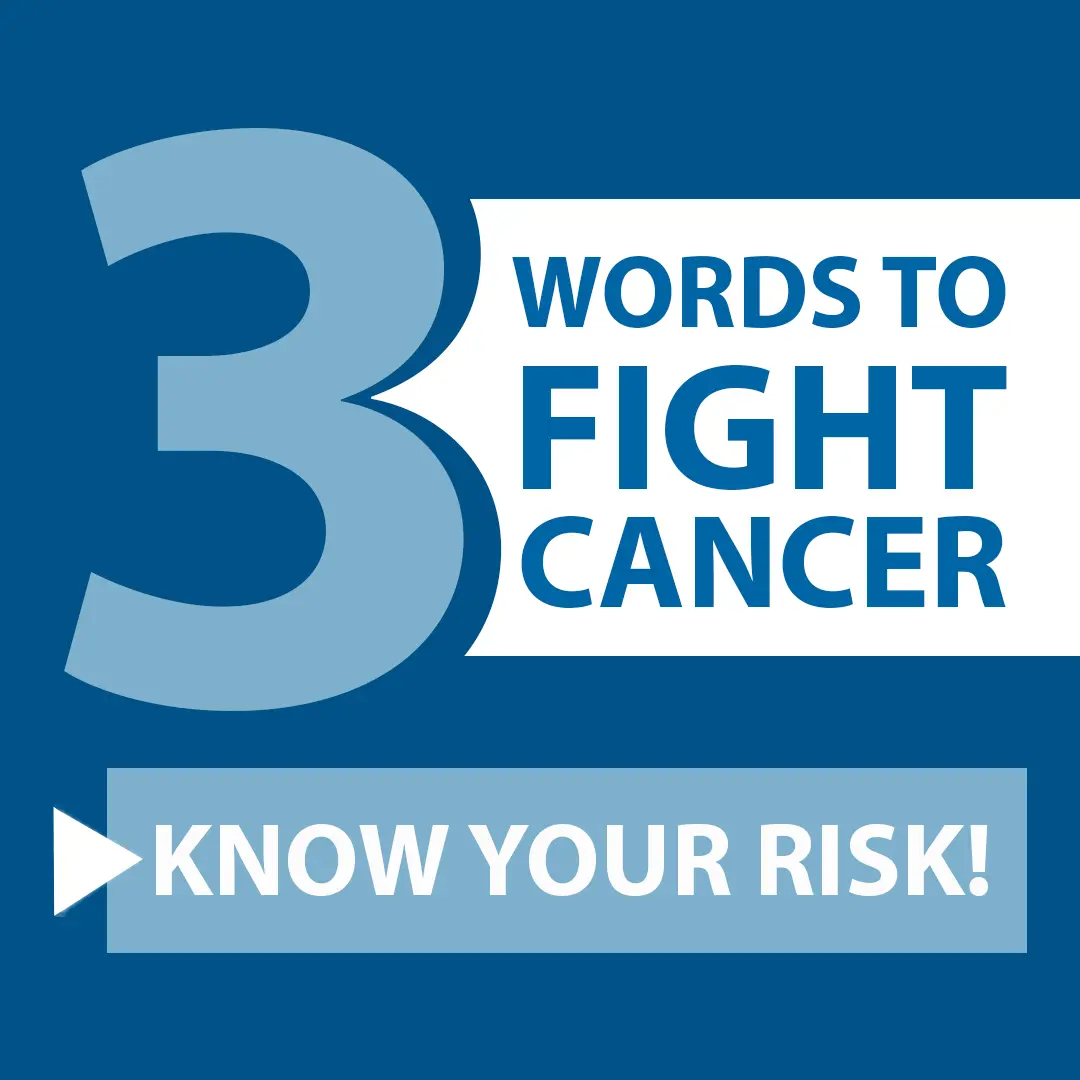Three Words to Help Fight Cancer: Know Your Risk!

Dr. Jeffrey Rose, MD is an experienced oncologist at the Adena Cancer Center. During his 11 years in practice, Dr. Rose has helped his patients manage every type of cancer, with emphasis on lung, breast and colorectal – the three most common cancer types. His key advice to patients, “Screening is of the utmost importance.”
The Factors in Risk
There are several factors which could increase your risk of getting cancer explains Dr. Rose. One is genetic. You could have a higher risk factor if your family has a history of cancer. Another is your health behavior. If you smoke or are exposed to secondhand smoke, are overweight, have an unhealthy diet, lack exercise or have possible radon exposure*, you could be at greater risk for cancer. Additionally, if you aren’t getting age appropriate screenings for cancer, you increase your risk of late-stage detection. This could lead to a fatal cancer diagnosis.
Dr. Rose says there are potential warning signs for cancer. A patient should consult their physician if they are experiencing any of the following symptoms:
- Abnormal lumps or thickening under the skin
- Sores or cuts that don’t heal
- Unexplained weight loss
- Shortness of breath
- Unusual bleeding or discharge from any part of the body
- Blood in urine
- Change in bowel habits, black, tar-like stools, or bright blood per rectum
- Persistent cough or hoarseness
- Difficulty swallowing or persistent indigestion
- Change in warts or moles
Screening is Believing
A screening test is used to look for a disease when a person doesn’t have symptoms. (When a patient does have symptoms, tests are considered diagnostic.) The most common cancers Lung, Breast, Colorectal and Prostate, all have advanced screening tests that are recommended at key target ages.
Guide for Cancer Screening
Type of Cancer | Age / Parameters for Screening |
Lung Cancer |
|
Breast Cancer |
|
Colorectal Cancer |
|
Prostate Cancer |
|
The Right Approach
“Advancements in cancer treatment have come a long way in the last five to ten years with new medicines and medical approaches,” explains Dr. Rose. Based on the type and stage of cancer, the Adena Cancer team works together with primary care and other specialists to determine what treatment option, or combination of treatment options might work best for a patient. “Sometimes we can provide surgical options and avoid more intensive treatments like chemotherapy,” says Dr. Rose. In other cases, the team may use chemotherapy before or after surgery to improve outcomes. Treatment is designed around each specific patient. “Our Adena care teams work together. We hold weekly tumor conferences to discuss each patient’s needs and treatment responses.”
Adena offers genetic counselling for patients. If a patient has a certain genetic mutation, we work with genetic teams at The Ohio State Wexner Medical Center to help understand, screen, counsel and evaluate the patient and the patient’s family. This helps determine the best pathway to care.
Through a collaboration with the Columbus Community Clinical Oncology Research Program (NCORP), Adena patients also have potential access to clinical trials for leading-edge cancer treatments.
“The key is age-appropriate screenings for early cancer detection,” says Dr. Rose. “With advanced technologies and medications, cancer patients have more opportunities than ever to beat cancer, but they need to have regular screenings to detect any issues early.”
Patients can also evaluate their potential cancer risk with the Adena online Heath Risk Assessment tools. Knowing your risk, sharing your results with your doctor and regular screening can be some of the best tools to fight cancer.
* Radon is a naturally-occurring radioactive gas that can cause lung cancer. It comes from a combination of elements in the soil which occurs with some frequency in southern Ohio. It is can often emanate from cracks in basement floors and walls.